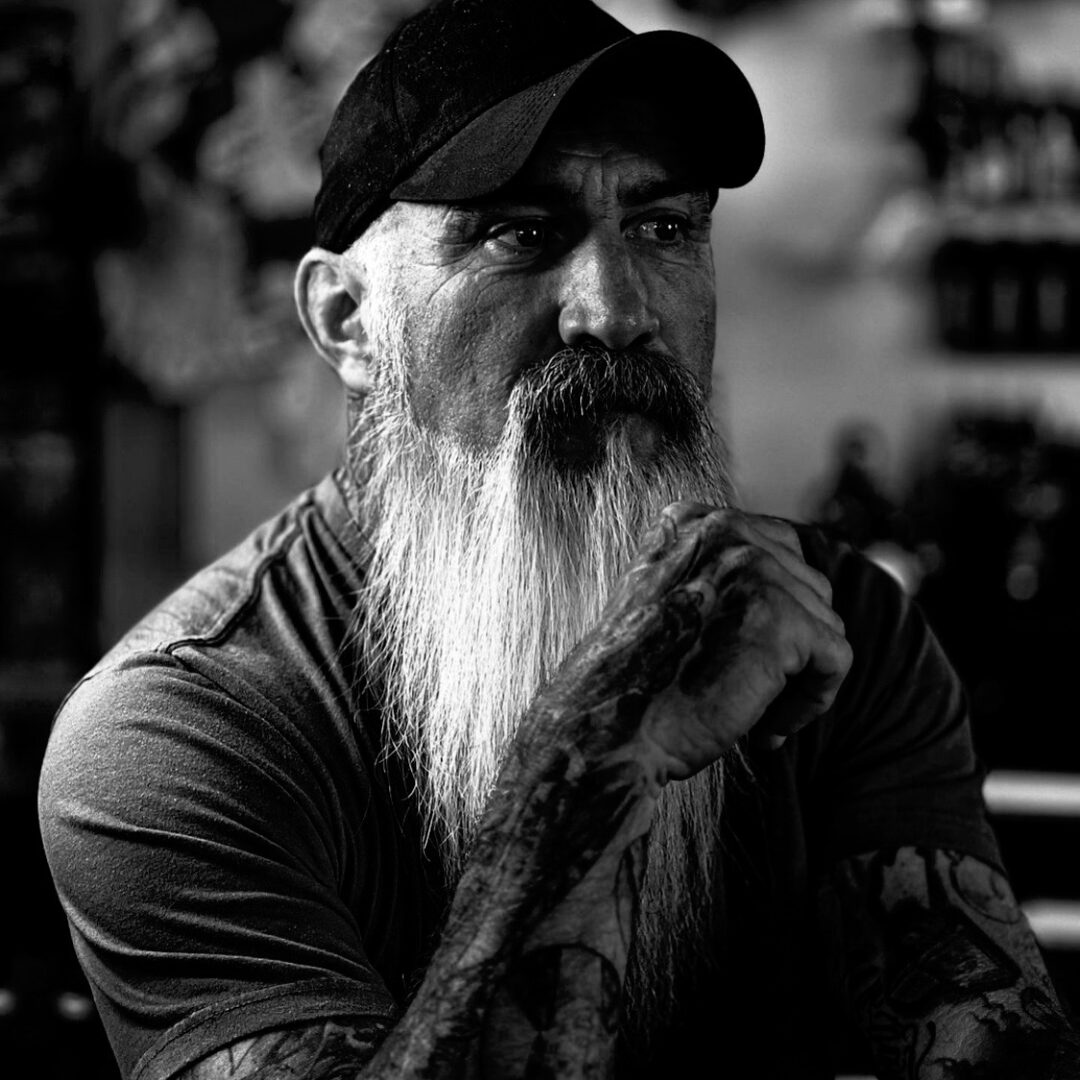We recently had the chance to connect with David Brown and have shared our conversation below.
David, we’re thrilled to have you with us today. Before we jump into your intro and the heart of the interview, let’s start with a bit of an ice breaker: What are you most proud of building — that nobody sees?
It’s the part of this whole thing that doesn’t show up on Instagram. The part that never makes it to the highlight reel. I’m most proud of the culture we’ve built—the invisible foundation that holds everything up.
We set out to build a studio, but what we really created was a family. A space where people are seen, where they’re safe to grow—not just as artists, but as human beings. Behind the machines and murals and applause is something much quieter: trust, second chances, and a deep belief that people matter more than profit.
We’ve had artists who came in broken—sleeping in cars, barely holding on—and now they own homes, mentor others, and live lives they once thought were out of reach. We’ve watched people become parents, beat addiction, chase dreams they thought were dead. Those moments don’t show up on balance sheets, but they’re the wealth I carry with me every day.
The thing I’m most proud of can’t be photographed or posted. It’s the loyalty that sticks when things get hard. The late-night talks after a rough day. The quiet way that excess is shared without question when someone’s family hits a rough patch. It’s the scaffolding of love, trust and grit that keeps our little world upright—and the knowledge that what we built will outlive us, in all the best ways.
Can you briefly introduce yourself and share what makes you or your brand unique?
My name is David, or “DB”, and together with my wife—Brenda, my partner in life, my love, and the chaos of entrepreneurship—we’ve built Fallen Heroes Tattoo & Piercing from the ground up. What started as a dream between two people who just wanted to do something different in this industry has grown into the largest tattoo studio in the United States, with locations in Colorado and Florida. But if I’m being honest, all of it—the growth, the success, the name—it only happened because of her.
She’s the heartbeat of this brand. She’s the one who believed in the vision when it was just an idea scribbled on a napkin. She’s the one who kept us grounded when things got messy, and lifted us higher when the wins came. Where I see risk, she sees possibility. Where I carry weight or doubt, she reminds me why we started. There have been moments where everything felt like it might cave in, and every single time, she stood there beside me and said, “Let’s keep going.”
Our studios are more than places to get incredible tattoos—they’re safe havens for our artists, our family. We are built on a model where the artist earns more than the owners, where community comes before clout, and where every decision is rooted in the same question: Is this the right move for the people we care about?
We also created Tattooathon®, which is now the largest tattoo-based fundraiser in the country, and our nonprofit Redemption Ink, which helps survivors of human trafficking rewrite their story through transformative tattoo work. These aren’t side projects—they’re part of the promise we made to use this platform to do good.
We’ve got a lot going on, but underneath it all, it’s still just the two of us, building with our hearts out front, side by side. I’ll give her the spotlight every time, because without her, none of this would have happened.
Great, so let’s dive into your journey a bit more. Who were you before the world told you who you had to be?
I was a soldier. I wore the uniform with pride, and I did what was asked of me without question. In that role, I saw the very best and the absolute worst of humanity—moments that still rattle around in the quiet corners of my memory. War has a way of stripping everything away and showing you just how brutal, beautiful, and fragile we all are.
After that, I chased stability. I earned my degree in computer science, then another in graphic design. I leaned into the structure I’d known in the military and merged it with the creative spark that was always quietly burning underneath. As a contractor, I built systems, solved problems, made things run smoother—early enough in the tech boom that the money was damn good. And we used it to build what we called our “someday fund.”
That “someday” turned into Fallen Heroes Tattoo—a wild, heart-led idea my wife and I started sketching out late at night. A place where artists would be valued, where the culture would come before the cash, and where we could pour everything we’d learned about discipline, love, risk, and grit into something that felt real.
But who was I before all of that? I was doing what I needed to do. Surviving. Serving. Learning. Raising my family the very best that I could. I was shaping myself through necessity. And I’m grateful for that path—it forged me. But these days, I’ve stepped into something different. I’ve stopped accepting what I “have to be” and starting being what I want to be.
I was who I needed to be until I learned what I needed to become who I wanted to be.
And now? My wife and I are building that life—one unfiltered, uninstructed step at a time.
What have been the defining wounds of your life—and how have you healed them?
I grew up rough. My mom was a single parent doing the best she could with almost nothing. When things got really bad, we stayed with grandparents or bounced between family members just to get by. Some of the men who came into our lives back then… they weren’t worth the breath it takes to speak their names. The kind of men who hit kids. Who hit women. The kind of men who made a scared kid grow up faster than he should’ve had to.
Those wounds didn’t define me—but they damn sure educated me. Even as a kid, I knew in my bones that I never wanted to make another person feel the way I felt. I never wanted anyone I loved to be afraid of the person who was supposed to protect them. So I made a decision early on: I would be different.
I wouldn’t call those wounds “healed,” not really. And I’m not sure I’d want them to be. The pain left a scar I still feel—but that scar reminds me daily of who I won’t be. I’ve never raised a hand to my wife, never raised a hand to my kids. I keep them close, right here beside me, where love leads every step we take. That past… it follows me, sure—but only to remind me that every step away from it is a victory.
So no, I don’t think those wounds ever fully go away. But they’ve become part of my compass. And I’m proud of the direction they point me.
Sure, so let’s go deeper into your values and how you think. What’s a cultural value you protect at all costs?
The one thing I’ll go to war for—every time—is our shared humanity. The idea that every person who walks through our doors, picks up a machine, or simply stands beside us in this life is not separate from us. I don’t care where you’re from, who you love, what you believe, or what you’ve survived—if you’re part of this, you’re part of this. Period.
I’m not talking about religion or dogma. It’s not about a belief in God or the devil. It’s about a recognition—one I came to the hard way—that we are all deeply, inescapably dependent on one another. Whether we like it or not, we need each other. And the moment we forget that, we lose the thread.
There’s a quote I hold close. It’s mine, and it’s become sort of a cornerstone for how I try to live:
“When we finally realize how insignificant we are in the universe, we’ll understand just how important we are to each other.”
That truth runs through everything we do at Fallen Heroes. We protect it in the way we treat our team, the way we treat our clients, and the way we build our communities. Ego dies at the door. Compassion walks in first. And if we get that part right, the rest always follows.
Okay, so before we go, let’s tackle one more area. What is the story you hope people tell about you when you’re gone?
I hope they say I was loyal—to my people, to my word, and without question, to my wife. I hope they remember that my honesty wasn’t always soft, but it was always real. I’ve never been one to sugarcoat the truth, but if I gave it to you straight, it meant I cared enough not to lie you.
More than anything, I hope they talk about Brenda. About the way she stood beside me, through every storm. About how she believed in me when I didn’t believe in myself. She has (literally) saved my life more than once—not with grand gestures, but by showing up, staying steady, and reminding me who I am. If I’m remembered as a man who loved his wife with his whole heart, who chose her again and again—that’s a story I’d be proud of.
And I hope they talk about what we built together. Fallen Heroes isn’t just a tattoo studio—it’s a community, a family, a living, breathing legacy. It’s a space where artists are valued, where clients are seen, and where the culture we created protects the very best in people. And Tattooathon—our way of giving back—has become the largest tattoo-based fundraiser in the country. We started it with the hope of making a difference, and now it’s helping fight cancers and change lives in ways we never could’ve imagined.
If the name Fallen Heroes is still being spoken long after we’re gone, if Tattooathon keeps growing and giving, and if someone says, “They built something that mattered—and they built it together”—then I think we’ll have done it right.
Contact Info:
- Website: https://fallenheroestattoo.com
- Instagram: dirtyburke
- Facebook: https://facebook.com/DBB1970
- Other: https://linktr.ee/dbb1970
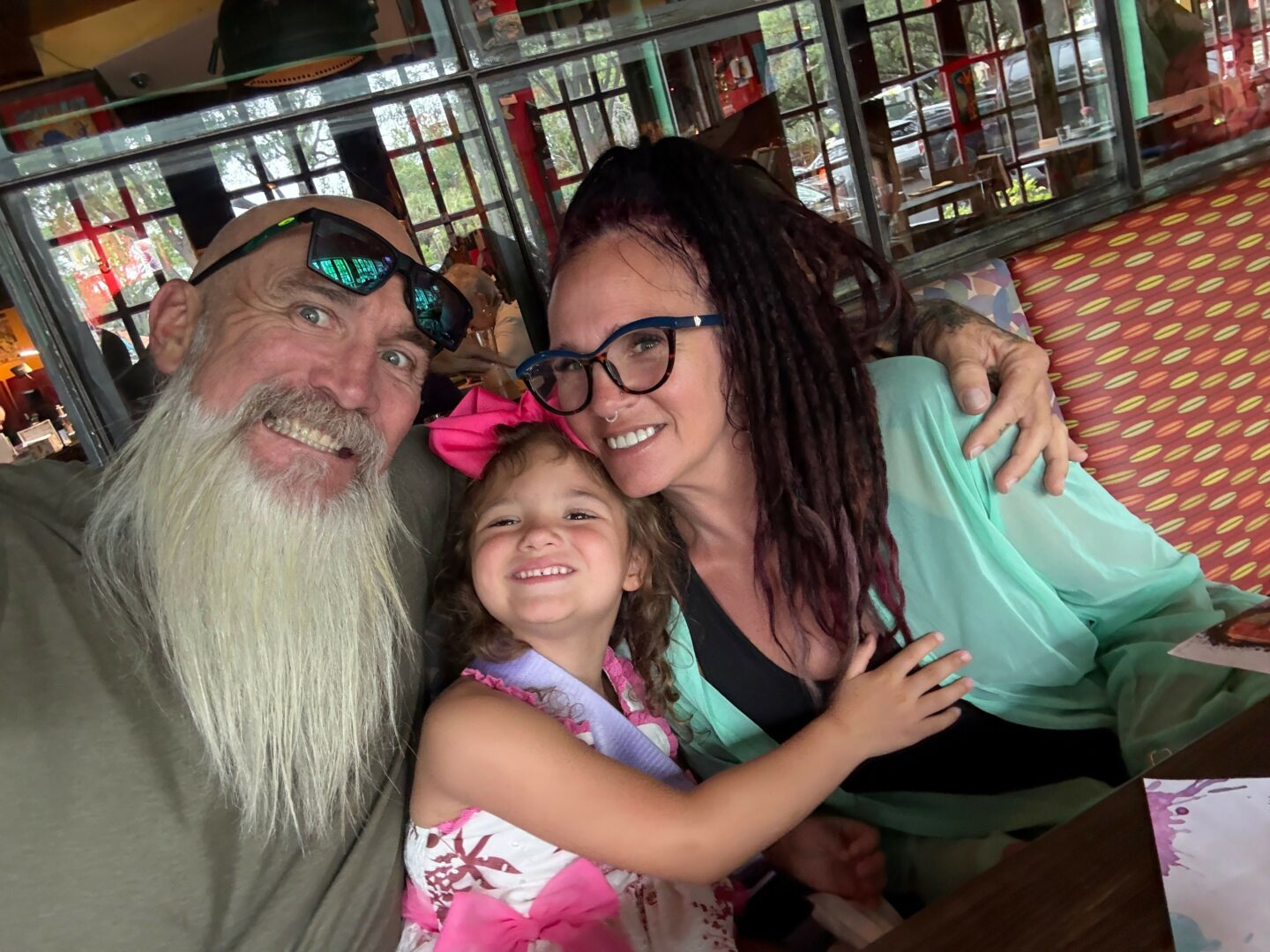
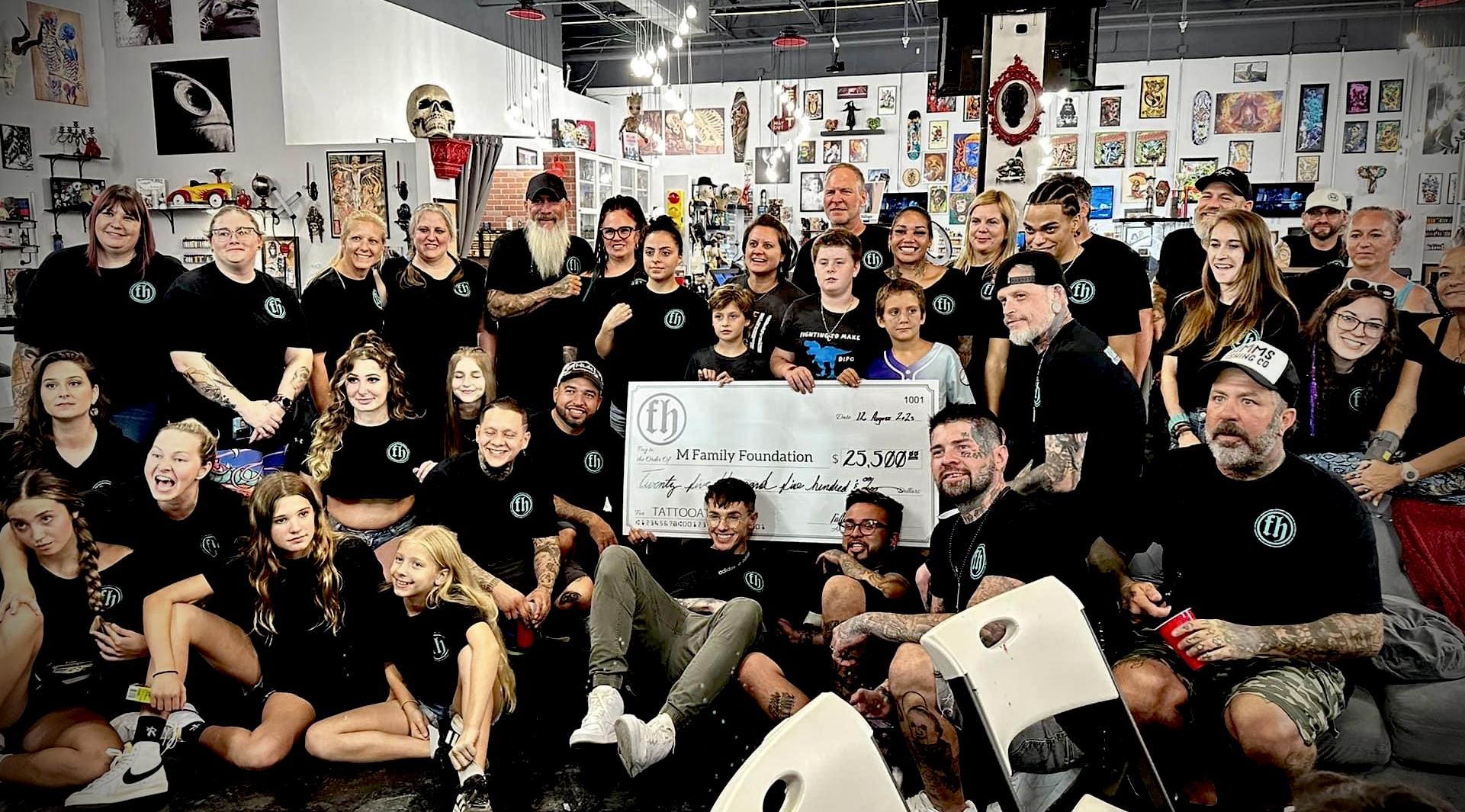
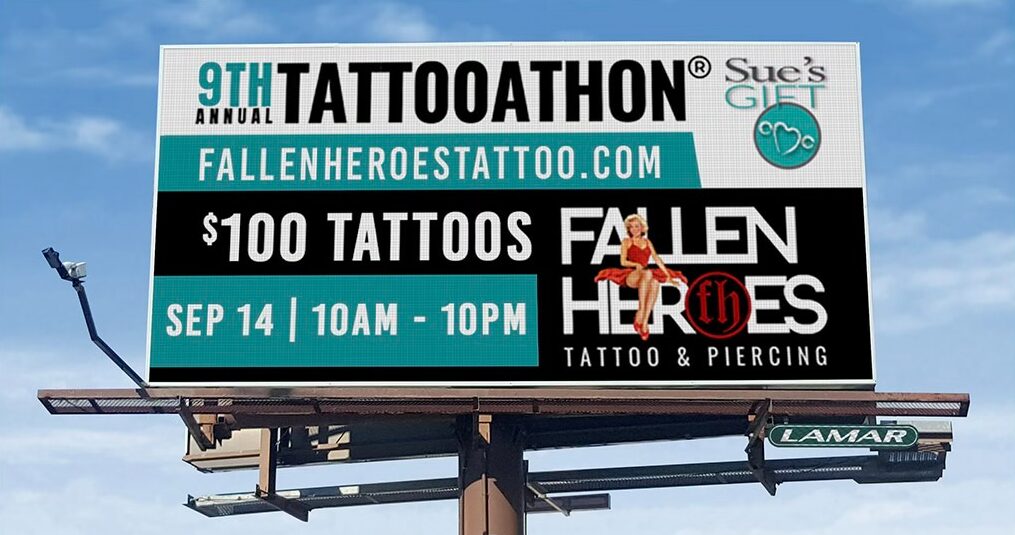
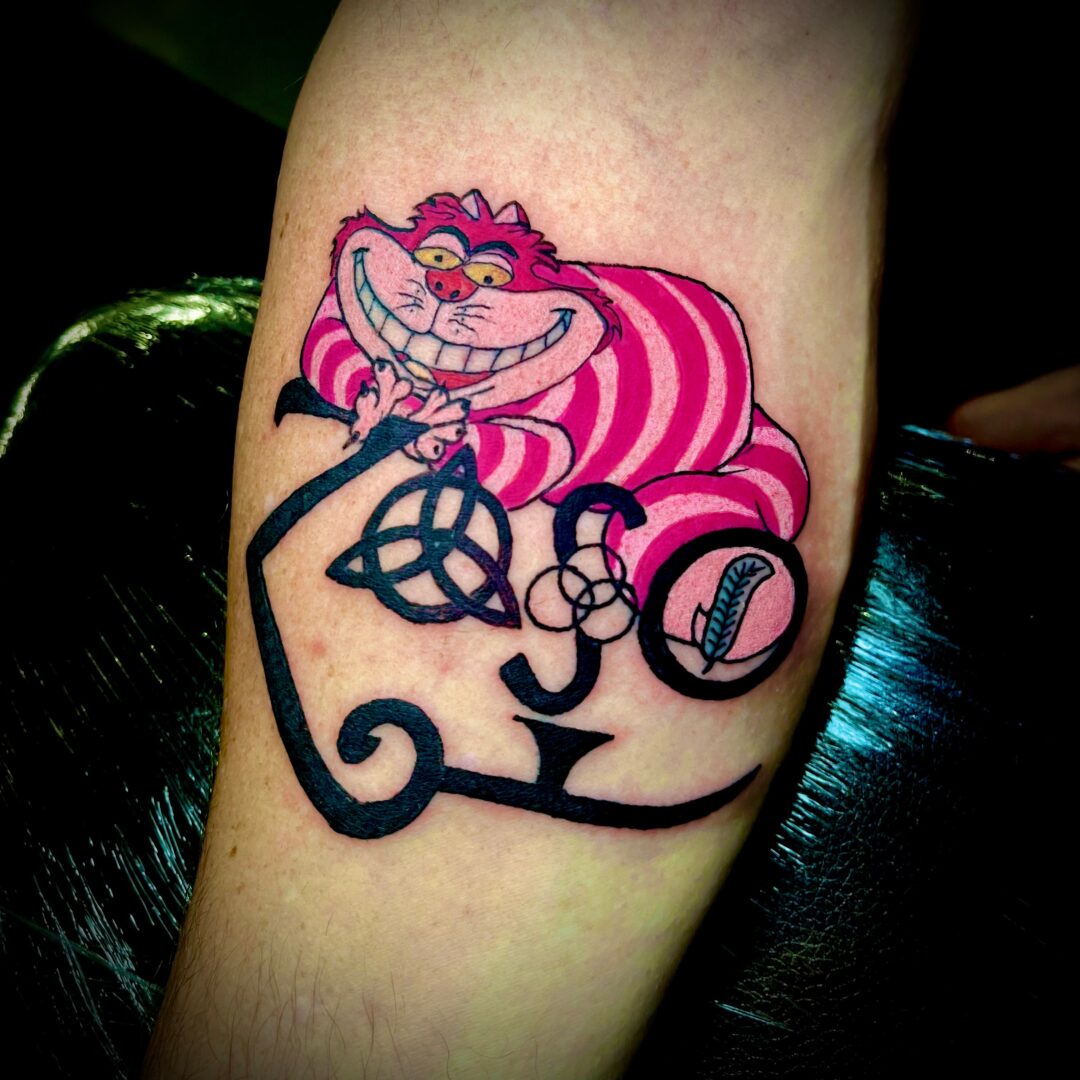
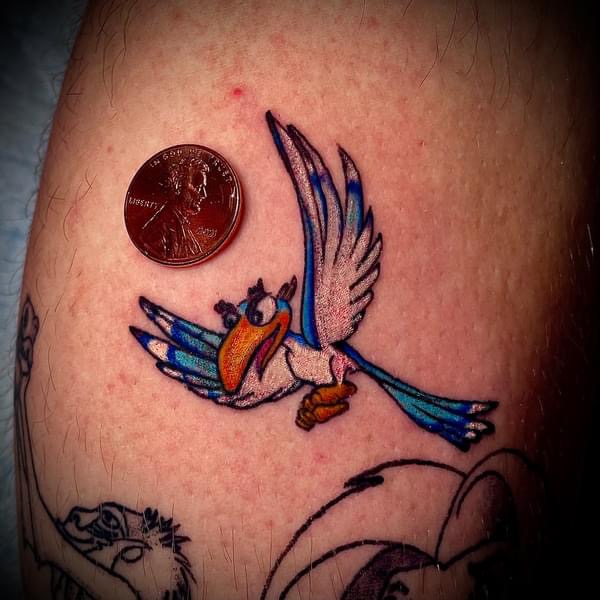
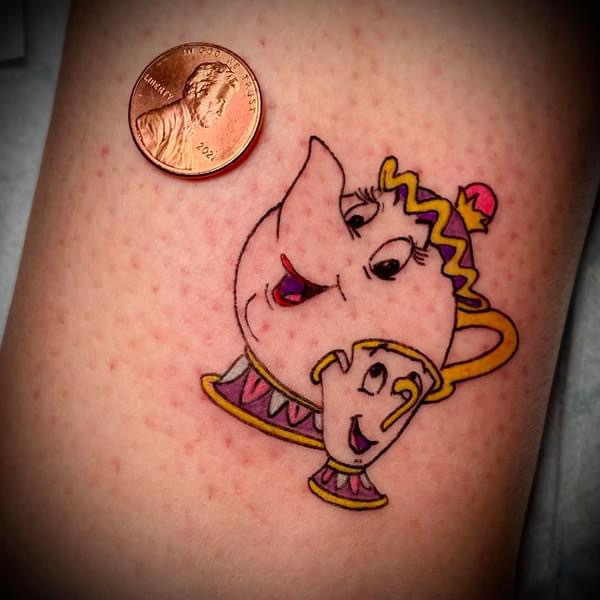
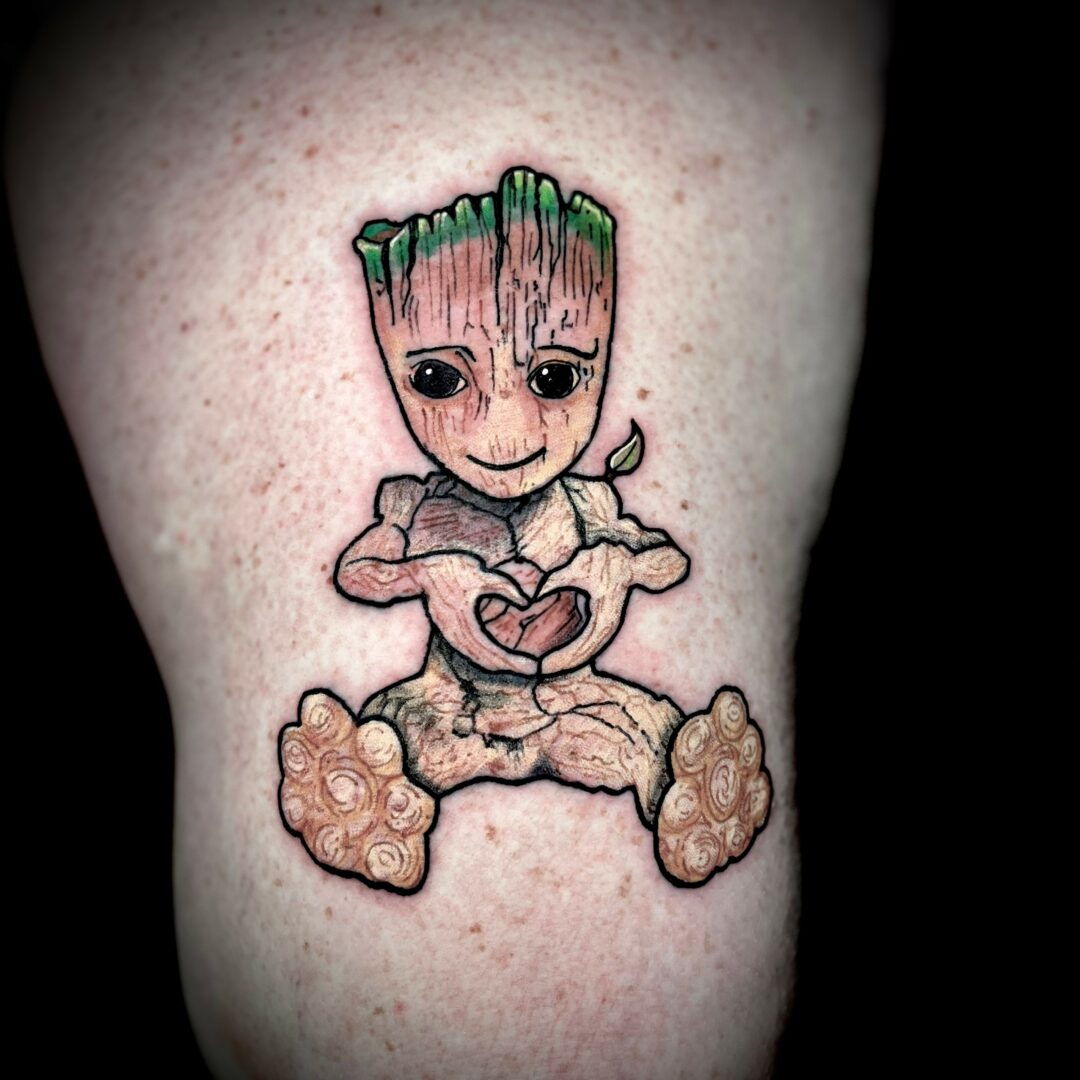
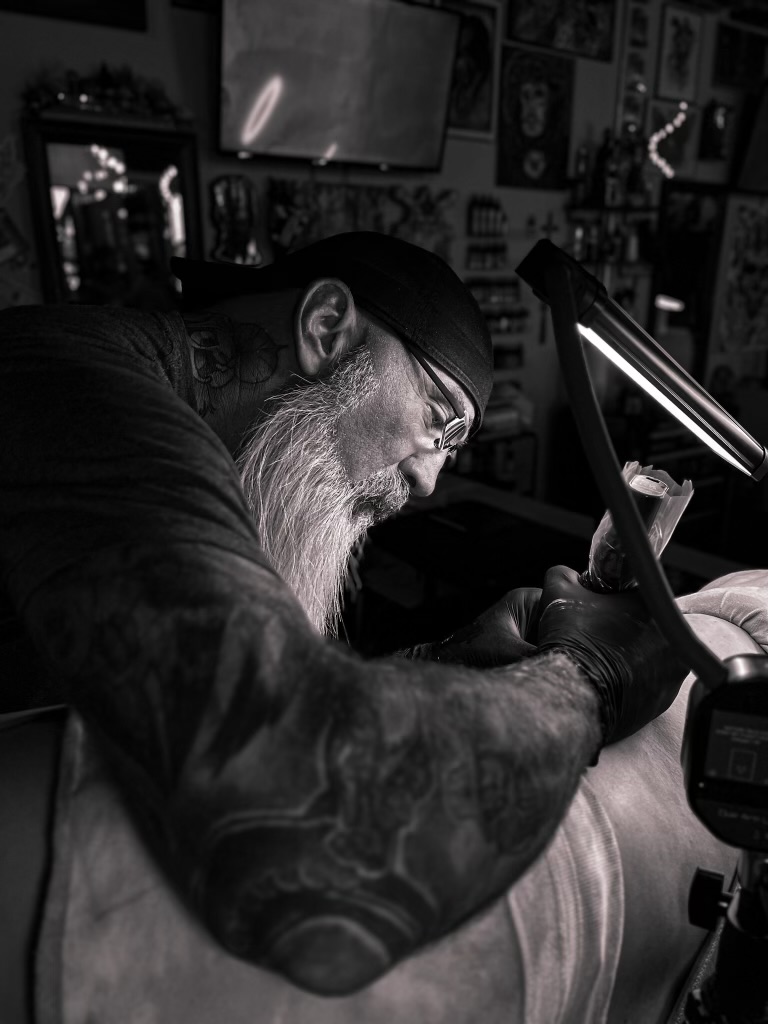
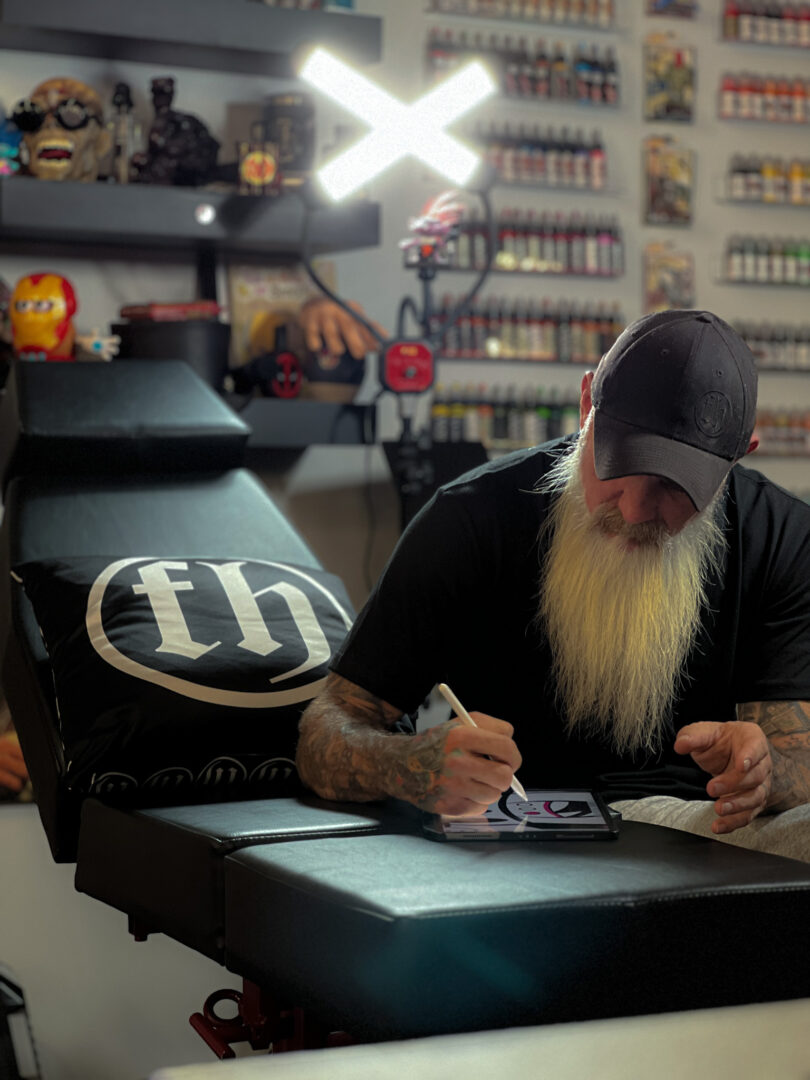
Image Credits
Lamar signage courtesy of Lamar
so if you or someone you know deserves recognition please let us know here.

